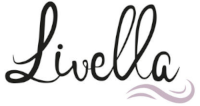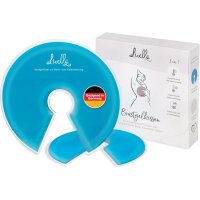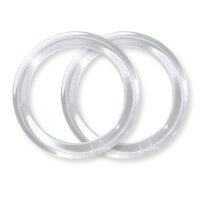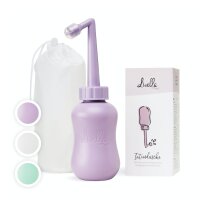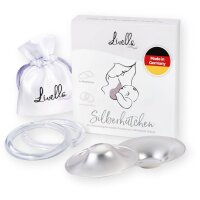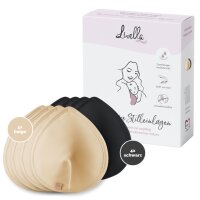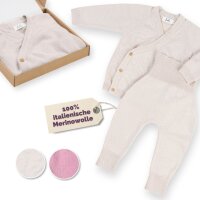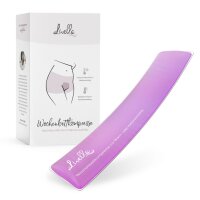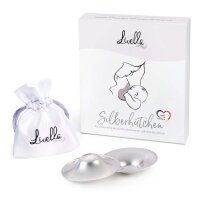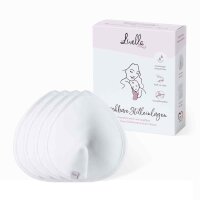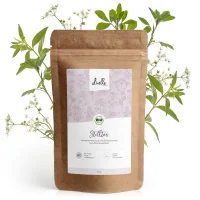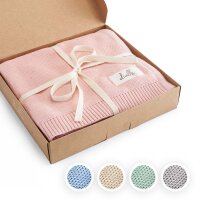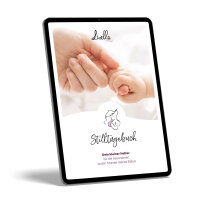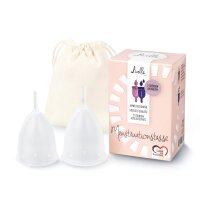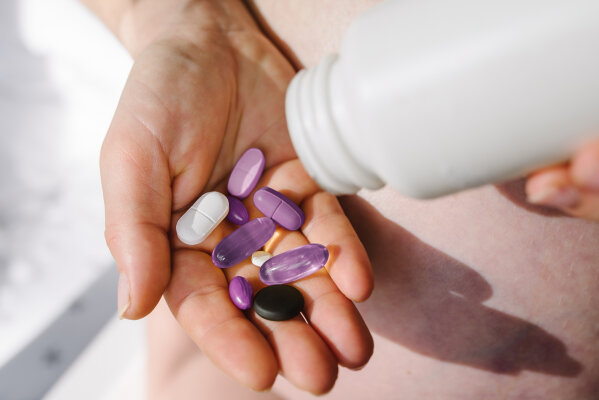Adding a few extra nutrients to their breast milk to make it even richer is an idea many breastfeeding mums play with. After all, making sure their little one gets all the important nutrients and energy he or she needs for a healthy development is the main priority for mothers throughout their baby’s first years of life.
Very often, the natural reaction is to reach for dietary supplements that are marketed specifically for breastfeeding mothers. But is it really necessary to take food supplements for breastfeeding? What nutrients should you increase while breastfeeding? And what supplements for breastfeeding are superfluous?
Inhaltsverzeichnis
Supplements for breastfeeding: What are the nutritional requirements for lactation?
Is it necessary to take nutritional supplements while breastfeeding?
Which supplements for breastfeeding mums are recommended?
Which supplements to avoid while breastfeeding?
What about natural breastfeeding supplements?
Supplements for breastfeeding: What are the nutritional requirements for lactation?
A woman’s need for certain nutrients increases during breastfeeding. But why do breastfeeding mothers need more nutrients? The increased nutrient needs during lactation are simply due to the fact that the body needs to make breast milk. Nutrients that need to be increased include:
- Iodine
- Choline
- Folate
In addition, there are various nutrients that are important for breastfeeding mums, yet often fall short with the daily food intake. While breastfeeding, women should pay particular attention to their intake of:
- Calcium
- Zinc
- Magnesium
- Vitamin B6
- Vitamin E
- Thiamine
- Folate

Is it necessary to take nutritional supplements while breastfeeding?
In an online publication, the international arm of the La Leche League states that “if a breastfeeding mother is getting an adequate supply of vitamins in her diet, her milk will contain adequate nutrients in the perfect balance for her baby. If your baby is healthy and doing well, there is no need for vitamins, iron, or other supplements in the early months (apart from vitamin D)”.
And while it’s true that levels of certain micronutrients in breast milk are associated with the mother’s nutritional intake, studies on the effect of mineral and vitamin supplementation on breast milk composition have shown that the same cannot be said for all micronutrients.
In other words, increasing maternal intake of certain vitamins and minerals does not automatically lead to higher levels of said micronutrients in the mother’s breast milk. In these cases, taking supplements for breastfeeding would have no positive effect on the baby.
Which supplements for breastfeeding mums are recommended?
That being said, there are certain supplements for breastfeeding that are recommended for all mothers—regardless of their nutritional status. But what supplements are good for breastfeeding mothers?
The general recommendation is that women should take iodine supplements while breastfeeding. Iodine is part of many prenatal supplements, and since breastfeeding mothers also have a higher iodine need than normal women, the recommendation of taking iodine supplements extends to them as well. There are no specific recommendations in the UK as to how much iodine women should supplement while breastfeeding, but the European Food Safety Authority (EFSA) recommends a daily intake of 200 micrograms during breastfeeding.
Depending on the mother’s nutritional status, it may be necessary to supplement the intake of other micronutrients, too. This could include:
- Iron: Since women often suffer from iron deficiency and since the body needs even more iron for making milk, it may be advisable to take iron supplements while breastfeeding.
- Vitamin B12: Vitamin B12 supplements are heavily recommended for breastfeeding women who follow a vegetarian or vegan diet. B12 is a major contributor to the health of blood and nerve cells, and B12 deficiency usually results in weakness and tiredness.
- Omega-3 fatty acids: Omega-3 fatty acids such as docosahexaenoic acid (DHA) are important for metabolism and hormone production, among other things. Taking special supplements for breastfeeding could be necessary for mothers who don’t eat fish.
- Calcium: The increased need for calcium during breastfeeding can usually be covered through a balanced diet that contains milk and dairy products. In cases where important calcium-rich foods are excluded from the mother’s diet (e. g. because she is vegan), additional supplementation may be necessary.
Before taking any supplements, however, breastfeeding mothers should seek advice from a dietician or consult their GP to check if they really need supplementation.

Good to know: It’s not just the mother who might need to supplement her intake of certain nutrients. Babies also need an additional dose of certain nutrients in the first months of life. This includes:
- Vitamin D: A deficiency of vitamin D can lead to sleep disorders, restlessness, irritability and deformation of the bones (also known as rickets), among other things. As infants do not usually spend enough time outdoors to produce sufficient amounts of vitamin D, it is recommended that infants are given 400 IU/day of vitamin D.
- Vitamin K: Supplementation of vitamin K is also recommended for newborns. Vitamin K is essential for blood clotting and is normally both absorbed through food and produced by bacteria in the gut. However, especially in the first days after birth, the body's own vitamin K production doesn’t function properly yet. To prevent a deficiency, babies should receive a supplemental dose on the day they are born.
Which supplements to avoid while breastfeeding?
So, taking certain vitamin and mineral supplements while breastfeeding is recommended. But are there also supplements that lactation experts and health professionals advise against? What answer to give breastfeeding mums who are wondering: What supplements should I avoid while breastfeeding?
In their recommendations on maternal diets during breastfeeding, the CDC (Centers for Disease Control and Prevention) states that: “Continued use of a prenatal vitamin postpartum may exceed the iron and folic acid needs of a breastfeeding mother.”
But there is no specific contraindication for women not to continue taking a prenatal vitamin. In fact, many health professionals and even the World Health Organisation (WHO) recommend continued use of prenatal vitamins during breastfeeding.
Where breastfeeding mothers should act with caution, however, is the use of multivitamins that contain high doses of different vitamins. As the Consumer Organisation in Hamburg warns, multivitamins and other supplements containing different vitamins and minerals are often overdosed and can cause problems in the long run.
What about natural breastfeeding supplements?
In addition to the nutritional supplements for breastfeeding that are available in pharmacies and supermarkets, there are a number of herbal breastfeeding supplements that can help increase milk supply. These include:
- Fenugreek: Fenugreek is not only said to have a milk-forming effect, but it also has numerous other health-promoting properties.
- Anise, fennel, caraway: Fennel, caraway and anise are also said to help boost breast milk supply. Although there is no scientific evidence, there are many midwives who endorse this claim.
The easiest way to leverage the milk-forming properties of these herbs is to drink two to three cups of breastfeeding tea per day.
Verwendete Quellen
- Nutrition During Breastfeeding: How Health Professionals Can Support Healthy Moms and Babies - News & Events | health.gov
- Maternal Diet | Breastfeeding | CDC
- Meeting Maternal Nutrient Needs During Lactation - Nutrition During Lactation - NCBI Bookshelf (nih.gov)
- Vitamins and Other Nutritional Supplements - La Leche League International (llli.org)
- Nutritional supplements and mother’s milk composition: a systematic review of interventional studies | International Breastfeeding Journal | Full Text (biomedcentral.com)
- Breastfeeding, Family Physicians Supporting (Position Paper) | AAFP
- Vitamins Postpartum: 5 Things to Think About - Penn Medicine Lancaster General Health
- Iodine Food fact Sheet | British Dietetic Association (BDA)
- Vitamin D, Your Baby, and You - La Leche League International (llli.org)
- Policy Statement: Breastfeeding and the Use of Human Milk | Pediatrics | American Academy of Pediatrics (aap.org))
